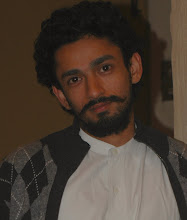A queer thing happened in India in this second week of the seventh month of 2009. An event most gay, when every patriot’s prayers were answered. A week when Bapu Gandhi’s dream was realized. The age old slogan “Hindu-Musim-Sikh-Isai sabhi yahan hain bhai bhai” played out. An act almost as unnatural as the one they were opposing occurred. Religious leaders of all faiths came together as one.
My gay gangrenous gang I quarantine myself from you and your disease. Yes it’s a disease as diagnosed by Baba Ramdev. Is there a vaccine Baba that you can inject me with, gently? And I don’t like it in the arm.
My same sex psychos I pity you for meddling with the natural order of man, as pointed out by the devout Muslim Mullah-ji. I thank thee Mullah-ji for letting our minds and bodies remain intact the way nature intended - well almost.
My deranged dude diggers I fear you for your being a threat to civilization as pointed out by the somber looking Christian priest. Don’t forgive them father for they have sinned. Take them to confessional booth and make them pay.
My horrible homos I shake my head in disbelief and do ardas with Bhaiji as the Akal Takht the highest authority of Sikhism bans gay marriages in Gurudwaras! Bhaiji are you telling me thus far we allowed it? Wahe Guru I can’t believe this. Have I been eating kada-prasad polluted by the shadow of these deviants?
My erring erogenous explorers, I hunt you down with trishuls and vermillion war-paint on my forehead for being a threat to the age old Hindu tradition of only making us beat up hand holding hetro-sexual couples in parks or women having a beverage in a pub.
But my friendly fags I salute you for achieving what no leader in India was able to. All religious high priests unanimously aghast at the tinkering of article 377 and in orchestra like unison they rained on this gay parade.
Oh to see India weaved together by it’s inclusive composite culture. Who would have thought the Islamic Student Union of India would be protesting on the streets as the swetambar Jain priest struck a similar note in the TV studios. Who would have thought that a Christian Padre would be nodding in agreement as Baba Ramdev filed an appeal in the Supreme Court and a senior Hindutva leader echoed those sentiments and an Islamic Imam with untouched beard and clean upper lip pouted, nodded and muttering his harmony completed the symphony.
At the fag end of my hope of a united India I see a gay rainbow. Hah! Spring oh Sunflowers and bloom oh Lilies as the Pansies spread their radiant splendor.
Bapu would be proud that indeed India is the epitome of tolerance, brotherhood and religious unity. Bapu has forever been my hero, my idol. But what he could not achieve with his fasting and self-denial, an indulgent and hedonistic bunch has. I salute you my fairy God-brothers for making this come true and I almost wish I preferred hairy chests on the object of my desire to take some credit for this miracle but until I get there, in solidarity I too shall march with you for ushering in the new century as we sing what patriots hum-
“Homo Honge kaamyaab,
homo honge kaamyaab,
homo honge kaamyaab ek dinnn…”
